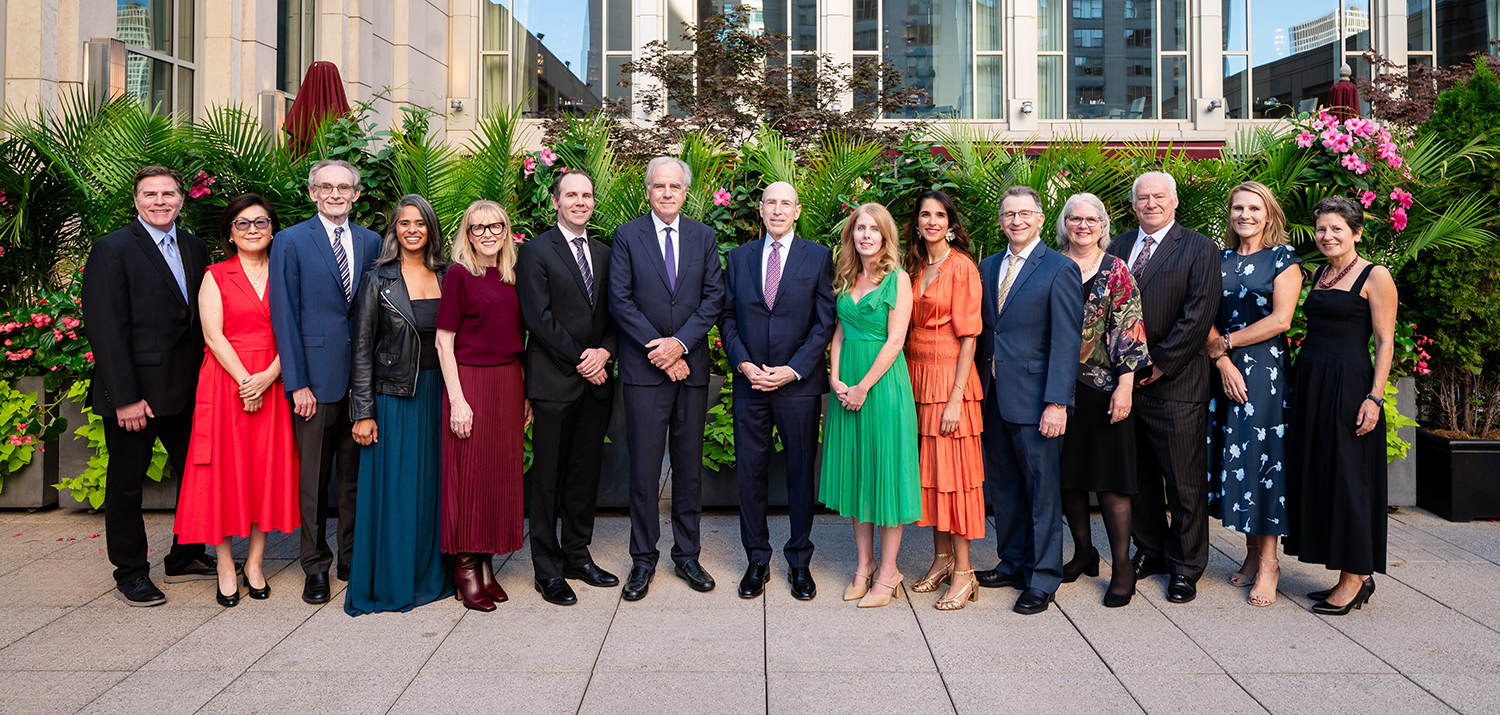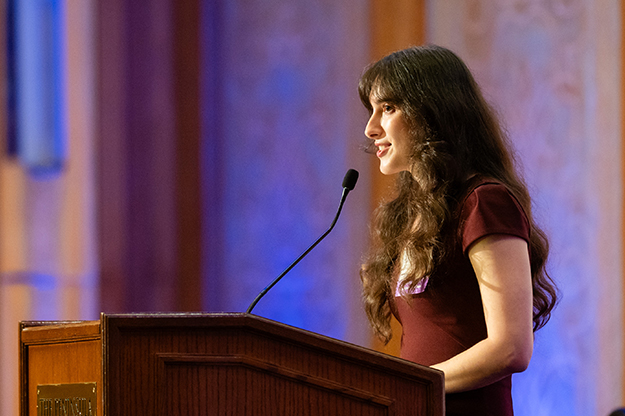Havey Institute Marks Milestones in Global Health at Annual Benefit

Almost 300 donors, members, and friends came together on September 17 to celebrate the transformative work of the Robert J. Havey, MD Institute for Global Health at its 18th annual benefit dinner.
The event highlighted many achievements, such as the launch of its new Center for Global Pediatric Health, a formal partnership at Stellenbosch University in South Africa, and a mobile clinic offering HPV screening and treatment for pre-cancerous lesions to patients in Nigeria and Mali. The institute’s accomplishments come even as global health funding has plummeted by $15 billion this year, according to the World Health Organization (WHO).
“It’s no secret that this year has been especially challenging for global health, due to funding cuts put in place by multiple countries,” said Robert J. Havey, ’80 MD, ’81, ’83 GME, deputy director of the Institute for Global Health and a clinical professor of Medicine. Yet, “global health problems won’t go away anytime soon, and most likely will get worse with more population growth, so it’s clear organizations like our institute will have to play an expanding role.”
At the dinner, Dr. Havey also announced a new $1 million gift from Richard Lenny ’77 MBA and Susan Lenny to support antimicrobial resistance research led by Egon Ozer, MD, PhD. The WHO estimates that bacteria, viruses, and other micro-organisms resistant to antibiotics, antivirals, antifungals, and anti-parasitics will cause approximately 10 million deaths per year by 2050.
Dr. Ozer and his team are using leading-edge—but expensive—mobile genetic sequencing technology to study these micro-organisms that cause infection.
“With the support of this generous gift from Richard and Susan Lenny, we’re now able to harness sophisticated genetic sequencing technology to study antimicrobial-resistant infections in real time across the globe. This will dramatically improve our ability to understand how these dangerous micro-organisms evolve and spread—and ultimately help us save lives,” Dr. Ozer said.
Robert L. Murphy, MD, executive director of the institute and the John Philip Phair Professor of Infectious Diseases, acknowledged that the institute made significant strides despite threats to federal funding this year.
“We have been very adaptive,” he said, adding that the institute’s work is mission-critical in preventing and combating the next pandemic. “It's important that we really cover the globe and track all the disease processes that are developing worldwide.”
Dinner attendees were treated to a short documentary covering the Havey Institute for Global Health’s work over the past year and narrated by acclaimed broadcast journalist Bill Kurtis, who also emceed the event. Leadership from Northwestern in attendance included Northwestern University Interim President Henry S. Bienen, past President Michael H. Schill, and Dean Eric G. Neilson, MD, of Feinberg School of Medicine.
Medical Education Across the Globe

Caroline Carlson, a second-year MD/PhD student, spent eight weeks in La Romana, Dominican Republic. There she saw the impact of global partnerships, such as the Havey Institute for Global Health’s, upon patients needing long-term primary care.
She shared a conversation that stayed with her—one with a mother named Nahome who has been a patient at Clínica de Familia, a full-scope primary and specialty care clinic serving the most vulnerable in the region, her whole life. Nahome acquired HIV from her mother who unknowingly passed the virus to her, but thanks to long-term, integrated care at the clinic, both of Nahome's children were born without HIV.
"Behind all of this were stable systems, reliable funding, and partnerships—including the one with Northwestern—that made long-term care possible,” Carlson said. “As global health funding shifts, I find myself asking, ‘What happens to families like Nahome’s if we turn away?’”
Oluwatobi Ogunbiyi, a second-year medical student, and Kylie Dougherty, PhD, RN, a nurse scientist and second-year post-doctoral fellow, addressed attendees of the benefit dinner via video messages.
Ogunbiyi shared that his journey into medicine is rooted in his early life in Nigeria. Witnessing the severe lack of access to healthcare, where patients were often turned away due to inability to pay, sparked his desire to become a physician and address systemic health disparities.
After moving to the United States, Ogunbiyi remained committed to improving healthcare access for underserved populations. This commitment led him to a research opportunity under Lisa R. Hirschhorn, MD, MPH, director of the Ryan Family Center for Global Primary Care at the Havey Institute for Global Health. He traveled to Rwanda to study the challenges of aging in low- and middle-income countries, where rising life expectancy has introduced new public health concerns related to chronic disease and healthy aging.
“This experience reaffirmed the vital importance of investing in global health research, particularly in aging populations in low-income countries,” Ogunbiyi said. “The world is changing and aging quickly.”
Dr. Dougherty, inspired by her mother and grandmother, both nurses, pursued a career in global health after serving in a neonatal intensive care unit in Haiti. Her journey has since taken her to Honduras and seven African countries. Dr. Dougherty emphasized the real-world impact of her work—saving lives, mentoring providers, and building sustainable health systems rooted in dignity and equity.
“Through the Havey Institute, I've met individuals whose lives have been directly touched by your support. And I can assure you the impact is real,” she said. “Let's keep building this future together where every person, no matter where they are in the world, receives high-quality healthcare and a hope for tomorrow.”
For more information, please contact Jenn Burke at jennifer.burke@northwestern.edu or 312-503-4635.